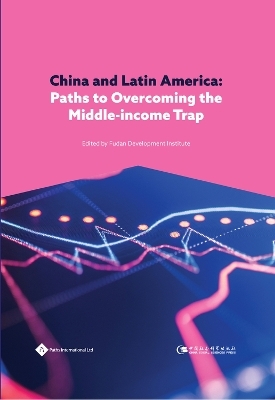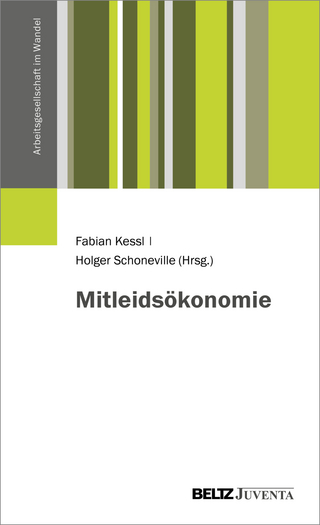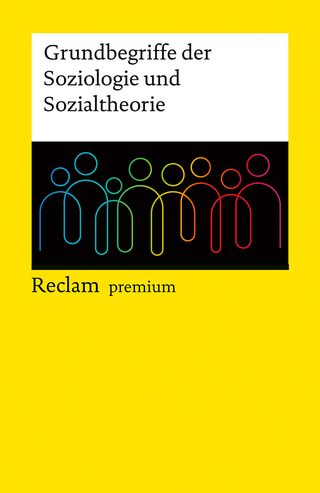
China and Latin America
Paths Publishing Group (Verlag)
978-1-84464-610-4 (ISBN)
The 'middle-income trap' (MIT) is a concept employed to discuss the phenomena of growth slowdowns of developing economies (Pruchnik and Zowczak, 2017). However, this concept habitually refers to those countries 'that have experienced rapid growth, which enabled them to reach the status of a middle-income country but have not been able to finally catch up to the developed countries and achieve high-income status—instead they became caught in the middle-income range.' (Glawe and Wagner, 2016).
This book is a multidisciplinary analysis of MIT recovery experiences from both China and Latin American countries. The different authors reflect on this from a variety of perspectives, such as the fight against income inequality, the promotion of trade agreements, financing for development and the role of multinational companies within the middle-income trap.
Fudan Development Institute, Founded in 1993, Fudan Development Institute (FDDI) has been exploring institutional innovation to build up a key comprehensive think tank of Fudan University. The Institute is operated by a staff team of 30 people, and it gathers a research team of hundreds of experts depending on the comprehensive disciplinary advantages of Fudan University in arts, science, medical science and engineering. FDDI is also a pioneer in establishing Students Consulting and Decision-making Society in order to achieve better performance on training and fostering talents. It hosts a variety of national and international conferences, including the Shanghai Forum and the China University Think Tank Forum, and undertakes daily managements and operations of several institutions including the University High-End Think Tank Alliance and the Center for Think-Tanks Research and Management in Shanghai.
Introduction The Middle-income Trap: A Puzzle from Different Perspectives
Chapter 1 Post-China Boom Development: Policy Priorities for Latin America in the Way Out of the Middle-income Trap
1. China's Slowdown and its Impact on Latin America
2. Innovation as the Way Out of the MIT
3. Rebuilding the Sino-Latin American Economic Partnership
4. Conclusions
Chapter 2 The Lack of Large Local Enterprises as an Important Explanation for the Middle-income Trap in Latin America Main Hypothesis
1. The Chinese case
2. Literature Review
3. The Technological Backwardness of Latin America
4. Methodology
5. Final Considerations
Chapter 3 Free Trade Agreements as Mechanisms of Wide-ranging and Multi-layered Cooperation: China and the Deepening of Relations with Chile
1. Theorizing the Political Economy of Trade Agreement and International Influence
2. Comparative Analysis
3. Discussion
4. Conclusions
Chapter 4 Mercosur and China: Partnerships, Challenges and Opportunities
1. A Brief History of Mercosur
2. Mercosur, China and the Middle-income Trap
3. Political Economy of China-Mercosur Ties
4. An Agenda for a New Mercosur-China Partnership
5. Conclusions
Chapter 5 China-Mexico FTA: Overcoming Trade Barriers to Escape the Mid- dle-income Trap
1. Under the Shadow of the TPP
2. Model and Data
3. ls There a Way Out from the Middle-income Trap?
4. Conclusions
Chapter 6 The Multimexicans in China
1. Models of lnternationalization of the MNE
2. Minicases of Multimexicans
3. Discussion and Conclusions
Chapter 7 Strategies for the Construction and Internationalization of Chinese Brands Aimed to the
Latin American Market
1. Perception about Chinese Brands and Presence in Latin America
2. Brand Building Strategies or Brand Internationalization Strategies?
3. Conclusions
Chapter 8 Chinese Creative Cities as a Path to Escape of the Middle-income Trap
1. The Creative Economy and the Creative Cities
2. The Creative Economy as a Gear for Development
3. Creative Economy and Creative Cities in China
4. Conclusions
Chapter 9 The China's International Cooperation, a Pathway to Escape the Middle
income Trap in Latin America?
1. Some Basic Concepts of lnternational Cooperation for Development (ICD)
2. China's International Cooperation
3. China-Latin America Cooperation
4. Conclusions
Chapter 10 Chinese Funding for Development in Latin America: Geopolitical Approach and New Opportunities for Escape of the Middle-income Trap
1. The Position of China in the Conceptualization of Financial Aid
2. The Actors of Chinese Financing for Development
3. The Chinese Financing to Development in Latin America
4. Conclusions
Chapter 11 China and Brazil: Transitioning from the Middle-income Trap to Sustainable Development? -A Sociological Perspective on Con- sumption, Inequality and the
Middle-income Trap
1. Inequality and the Middle-income Trap
2. China and Brazil as Unequal Countries
3. Public Policies concerning Consumption in China and Brazil
4. Conclusions
Chapter 12 Climate Change in Brazil and China: Impacts, Political Responses and
Challenges
1. Greenhouse Gas Emissions in China and Brazil
2. Economic and Social Impacts of Greenhouse Gas Emissions in China and Brazil
3. Chinese and Brazilian Climate Change Policies
4. Conclusions: Climate Change Challenges
Conclusions
References
About the Authors
| Erscheinungsdatum | 21.06.2021 |
|---|---|
| Sprache | englisch |
| Maße | 152 x 228 mm |
| Gewicht | 333 g |
| Themenwelt | Sozialwissenschaften ► Soziologie ► Allgemeines / Lexika |
| Wirtschaft ► Volkswirtschaftslehre ► Makroökonomie | |
| ISBN-10 | 1-84464-610-6 / 1844646106 |
| ISBN-13 | 978-1-84464-610-4 / 9781844646104 |
| Zustand | Neuware |
| Haben Sie eine Frage zum Produkt? |
aus dem Bereich


